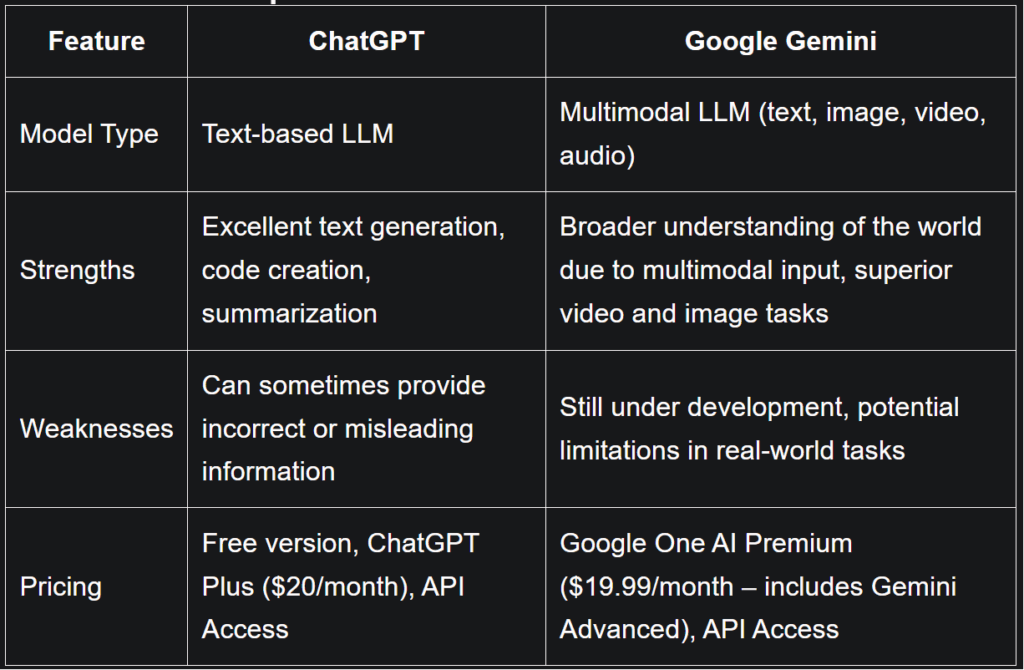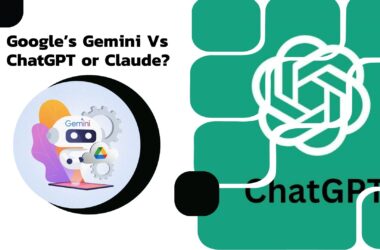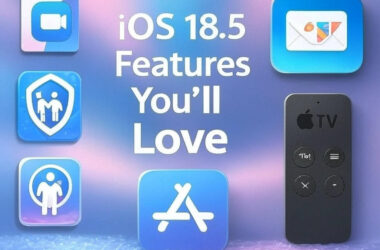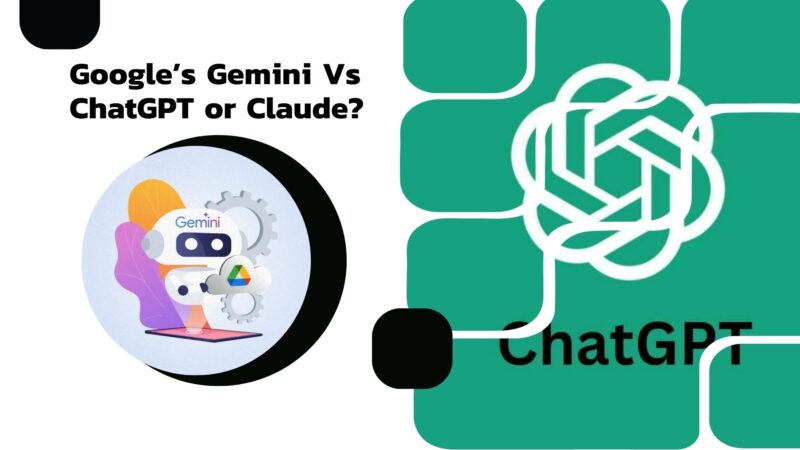The AI arena is fast evolving and is set to be led by mammoths such as Google, OpenAI, and Anthropic. With the release of Google Gemini, much anticipatory chatter amongst users arises regarding: How does it stand against ChatGPT and Claude? Each AI model has endowments peculiar unto itself, this blog will discuss comparative performance, features, and suitable use case scenarios.
What Is Google Gemini?
Google Gemini is a second-generation AI created by DeepMind to replace its predecessor, Bard. Unlike its predecessors, Gemini was designed as a multimodal AI with capacities to understand and generate content spanning text, images, code, audio, and more.
Google has actually launched multiple versions of Gemini:
Gemini 1.5 Pro: An extremely potent model to handle very technical and demanding tasks
Gemini 1.5 Flash: A faster and efficient model for household-based applications
Gemini Nano: Optimized for smartphones and other local devices, particularly on Android
Internally, these models are integrated with Google’s suite of products, from Docs, to Gmail, to Search.
READ ALSO: DeepSeek vs ChatGPT | What is the Difference?
What Is ChatGPT?
ChatGPT is a paid version with GPT-4-turbo, besides being based on GPT-3.5 for free usage. It enters the public sphere with prestige for chatting in a natural way, creating very detailed content, coding, and now even manipulating images or, through some software, analyzing data.
Key features:
Context-aware conversations
Support for tools like image generation (DALL·E), Python code, web browsing
Deep integration with Microsoft tools like Word and Excel via Copilot
Who Is Claude?
Developed by Anthropic, Claude focuses on safe and aligned AI. Its responses appear to be helpful, cautious, and user-friendly. Its entire conception is based on the principles of Constitutional AI, ensuring ethical output.
Claude models, especially Claude 3, have been commended for:
Long context handling (good for big documents)
Maintaining consistent tone and reasoning
Effective summarization and analysis

Comparing Gemini, ChatGPT, and Claude
| Feature | Google Gemini | ChatGPT (GPT-4 Turbo) | Claude 3 |
| Multimodal Capabilities | Yes (native support) | Yes (text & images) | Yes (text & images) |
| Response Speed | Very fast (especially Flash) | Optimized for speed | Fast and efficient |
| Code Understanding | Strong, especially in Gemini 1.5 | Excellent with coding tools | Good, but less focused |
| Text Creativity | Balanced | Highly creative | More formal and cautious |
| Context Window | Up to 1 million tokens (Pro version) | Up to 128K tokens | Up to 200K tokens |
| Offline Use | Yes (Nano on Android) | No | No |
| Free Access | Limited free tier | GPT-3.5 free, GPT-4 with Plus | Claude Haiku free, others paid |
From Laboratory to Workbench
Here is where each model can shine or face challenges when applied to the real world:
Writers and Content Creators: ChatGPT is considered excellent in writing creative stories, blogs, and marketing copy. Gemini is nearly there with the additional advantage of Google tools integration.
Developers and Coders: ChatGPT and Gemini help efficiently with code generation and debugging. Particularly, Gemini reaps the benefits of Google’s internal coding benchmarks.
Students and Researchers: Claude’s calm and accurate temperament makes it perfect for summarizing articles and generating research notes.
Mobile Users: Gemini Nano allows offline operations on some Android devices, a feature that’s still not supported by others.
READ ALOS: Why Countries Are Cutting Ties with DeepSeek AI?
Which One Should You Pick?
The best AI assistant depends on your need:
Opt for Gemini when you want advanced Google integration, multimodal tasks, or offline mobile features.
Opt for ChatGPT for a really capable, creative, and versatile assistant with support for plugins.
Opt for Claude if you focus on responsible AI, long document handling, and consistent reliability.
Google Gemini, OpenAI’s ChatGPT, and Anthropic’s Claude all offer something different. Whether you want creativity, enterprise safety, or device integration, there is a model for you. With these tools evolving further, many users will find combining them beneficial for various tasks.
Which AI tool do you rely on most — and why? Share your experience in the comments!
FAQs
1. What is the main difference between Gemini, ChatGPT, and Claude?
- Gemini is Google’s AI, designed to be deeply integrated with Google products and built for multimodal understanding.
- ChatGPT by OpenAI is known for its strong language capabilities, creativity, and wide availability via web and Microsoft tools.
- Claude by Anthropic focuses on safety, alignment, and reliable performance, especially with long documents and professional tasks.
2. Which AI model is best for coding help?
Both ChatGPT (GPT-4 Turbo) and Gemini (especially Gemini 1.5 Pro) are excellent for coding. ChatGPT has mature developer tools like the code interpreter, while Gemini leverages Google’s internal coding intelligence.
3. Can I use Gemini offline?
Yes. Gemini Nano is designed to work directly on supported Android devices (such as newer Pixel phones), enabling offline functionality — something neither ChatGPT nor Claude currently offers.
4. Which model handles long documents better?
Claude 3 is especially strong at processing long documents due to its large context window (up to 200K tokens). Gemini 1.5 Pro can handle up to 1 million tokens, but this may be available only in specific tiers or applications.
5. Is ChatGPT free to use?
Yes. GPT-3.5 is free to use on OpenAI’s ChatGPT platform. GPT-4 Turbo, which includes enhanced features and capabilities, is available under the ChatGPT Plus plan.












